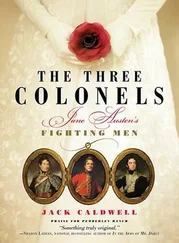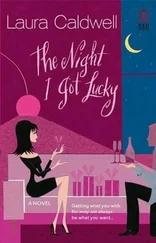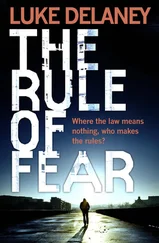I might not have grasped this very well, except that an interesting thing happened on campus just a few years before we arrived, which caught both Paul's attention and mine. A twenty-nine-year-old bicycle thief named James Hogue got into Princeton by claiming to be someone he wasn't: an eighteen-year-old ranch hand from Utah. Hogue said he'd taught himself Plato under the stars, and trained himself to run a mile in just over four minutes. When the track team flew him out to campus for a recruiting trip, he said it was the first time he'd slept indoors in a decade. The admissions office was so captivated that it accepted him on the spot. When he deferred for a year, no one gave it a second thought. Hogue said he was tending to his sick mother in Switzerland; in fact, he was serving a term in prison.
What made the hoax so intriguing was that, while roughly half of it was an outrageous lie, the other half was more or less true. Hogue was as good a runner as he let on, and for two years at Princeton he was a star on the track team. He was also a star in the classroom, shouldering a course load you couldn't pay me to take, and getting straight A's to boot. He was even so charming that Ivy tapped him for membership in the spring of his sophomore year. It almost seems a shame that his career ended the way it did.
By sheer accident a spectator at a track meet recognized him from a previous life. When word spread, Princeton conducted an investigation and had him arrested in the middle of a science lab. Charges were pressed, and Hogue pled guilty to fraud. Within a matter of months he was in prison again, where he slowly faded back into obscurity.
To me the Hogue story was the news event of that summer; the only thing to rival it was my discovery that Playboy had run a Women of the Ivy League issue the previous spring. To Paul, though, it was much more. As someone who always insisted on a varnish of fiction in his own life, pretending he'd eaten well when he hadn't, or pretending not to own a computer because he didn't like using one, Paul could identify with a mail who felt bullied by the truth. One of the only advantages of coming from nothing, as James Hogue and Paul both did, is having the freedom to reinvent yourself. In fact, the better I got to know Paul, the more I understood it was less a freedom than a kind of obligation.
Still, seeing what became of Hogue, Paul had to rethink the line between reinventing himself and fooling everyone else. Beginning the day he arrived at Princeton, he walked that line very carefully, keeping secrets rather than telling lies. An old fear returns to me when I consider that. My father, who understood the way the Hypnerotomachia had seduced him, once compared the book to an affair with a woman. It makes you lie, he said, even to yourself. Paul's thesis may be exactly that lie: after four years with Taft, Paul has danced and danced for the book, left his bed and lost sleep for the book, and for all his sweat, the book has given up very little.
Looking back in the mirror again, I can see him watching the snow. There is a blank look in his eyes and his face seems pale. In the distance a traffic light is flashing yellow. My father taught me something else without ever saying a word: never invest yourself in anything so deeply that its failure could cost you your happiness. Paul would sell his last cow for a handful of magical beans. Only now is he beginning to wonder if the beanstalk will grow.
I think it was my mother who told me that a good friend stands in harm's way for you the second you ask-but a great friend does it without being asked at all. There are so few times in a person's life when a single great friend comes around that it almost seems unnatural when three come around all at once.
The four of us met on a cool night during the fall of our freshman year. Paul and I were already spending much of our time together, and Charlie-who'd introduced himself on the first day of school by barging into Paul's room and offering to help him unpack-was living in a single room down the hall. Thinking nothing could be worse than being alone, Charlie was always on the prowl for new friends.
Paul immediately had misgivings about this wild, imposing character who never stopped pounding at his door with new adventures in mind. Something about Charlie's athletic build seemed to conjure a spell of fear in him, as if he' d been tortured by a bully of that description as a child. For my part, I was surprised that Charlie hadn't gotten tired of us, sedate as we were. Most of that first semester, I was convinced that he would abandon us for companions more like himself. I pegged him for a wealthy minority jock-the kind who had a neuro-surgeon mother and an executive father, who eased through a regional prep school with more tutors than trouble, and who arrived at Princeton with nothing particular in mind except to have some fun and graduate in the solid middle of the class.
That all seems funny now. The truth was, Charlie grew up in the heart of Philadelphia, riding with the volunteer ambulance squad through the worst crime districts in the city. He was a middle-class kid from a public school, whose father was a regional sales rep for an East Coast chemical manufacturer, and whose mother taught seventh-grade science. When he applied to college, his parents made it clear that anything beyond in-state tuition was a burden he would shoulder himself. The day Charlie arrived on campus, he'd taken on more student loans, and was more deeply in debt, than the rest of us would be when we graduated. Even Paul, who came from less, had been given a full scholarship because his need was so great.
Maybe that was why, other than Paul during his month of insomnia as thesis deadlines approached, none of us did more and slept less than Charlie. He expected great things for his money, and to justify his sacrifice, he sacrificed even more. It wasn't an easy thing to maintain a sense of identity at a school where only one in fifteen students was black, and only half of those were men. But identity for Charlie never ran along completely conventional lines anyway. He had a world-beating personality and an irresistible sense of purpose, and from the beginning I felt it was his world we were living in, not ours.
Of course, we didn't know all that on the late October night, only six weeks after we first met him, when he came to Paul's door with his most daring plan to date. Since roughly the Civil War, students at Princeton had been in the habit of stealing the clapper from the bell atop Nassau Hall, the oldest building on campus. The original idea was that if the bell couldn't toll the beginning of a new academic year, then the new academic year couldn't begin. Whether anyone actually believed that, I don't know, but I do know that stealing the clapper became a tradition, and that students tried everything from picking locks to scaling walls to do it. After more than a hundred years, the administration got so tired of the stunt, and so worried about a lawsuit, that it finally announced the clapper had been removed. Only, Charlie had information to the contrary. The removal was a hoax, he said; the clapper was intact. And tonight, with our help, he was going to steal it.
I don't need to explain that breaking into a historic landmark with a set of stolen keys and then fleeing from proctors on my bad leg, all in the name of a worthless bell clapper and fifteen minutes of campus fame, didn't strike me as a world-class idea. But the longer Charlie argued his case, the more I saw his point: if juniors and seniors have their research papers and theses, and sophomores choose their majors and eating clubs, then all that's left for freshmen is to take risks or get caught trying. The deans will never be more forgiving, he argued, than they will now. And when Charlie insisted it would take three people-no fewer-he and I decided that the only fair way to resolve things was to take a vote. In a reassuring test of democracy, we held a slim majority over Paul, and Paul, never being one to rock the boat, gave in. We agreed to be lookouts for Charlie, and after planning our course of attack, the three of us assembled what we could in the way of black clothing and set out for Nassau Hall at midnight.
Читать дальше












